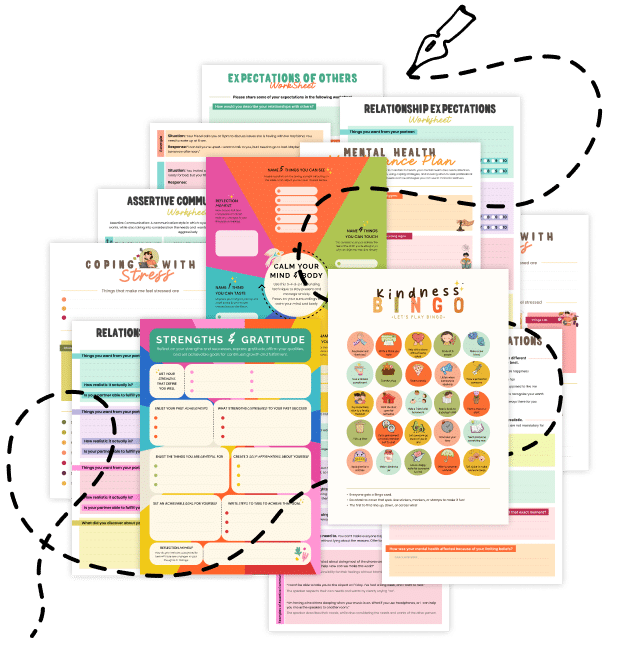20 Things About Brain Glymphatic Function
Your brain has a specialized “clean-up crew” that works mostly while you sleep—discover how Brain Glymphatic Function supports cognitive health, why it’s essential, and how to optimize this crucial biological process.
1. What Is the Glymphatic System?
The glymphatic system is your brain’s unique waste-clearing network. Similar to how the lymphatic system drains waste from the body, the glymphatic pathway flushes out toxins from the brain—especially during sleep.
2. A Relatively Recent Discovery
Scientists only identified the glymphatic system in the early 2010s. This new understanding has rewritten textbooks on how the brain maintains its health and has opened doors to research on neurodegenerative diseases.
3. How Glymphatic System Works
During sleep, cerebrospinal fluid (CSF) flows along the brain’s blood vessels and collects waste products—like beta-amyloid proteins—then channels them away for disposal. This cleansing action helps prevent buildup that could harm brain function.
4. Sleep Matters Most
The glymphatic system is most active when you’re in deep sleep. Your brain cells actually shrink slightly during this time, creating more space for fluid to circulate and remove waste effectively.
5. Link to Alzheimer’s Disease
Scientists have found that reduced glymphatic clearance may contribute to the accumulation of harmful proteins linked to Alzheimer’s. Maintaining healthy sleep patterns could potentially lower such risks.
6. Glymphatic System Impact on Toxins
Various toxins—including metabolic byproducts, environmental chemicals, and stress hormones—can accumulate in the brain over time. A well-functioning glymphatic system is essential for flushing them out.
7. Water Channels Are Key
Tiny protein channels called aquaporins help control the flow of cerebrospinal fluid. If these channels are blocked or dysfunctional, waste removal slows down and may increase the risk of neurological issues.
8. Day vs. Night
Although the glymphatic system can still function to a minor degree during the day, nighttime provides ideal conditions: lower blood pressure, relaxed muscles, and reduced mental activity give it room to work efficiently.
9. Effect of Caffeine & Alcohol
Excess caffeine or alcohol can disrupt sleep quality and, by extension, your glymphatic function. Moderation—or cutting back close to bedtime—helps keep your brain’s cleaning crew on schedule.
10. Exercise Helps
Regular physical activity supports overall circulation and may indirectly enhance glymphatic flow. Even moderate exercise—like brisk walking—could help your brain clear out daily metabolic waste more effectively.
11. Stress & Cortisol
Chronic stress elevates cortisol levels, which can interfere with deep sleep. High stress might reduce the glymphatic system’s waste-removal efficiency, underscoring the importance of stress management for brain health.
12. Influence of Position
Some studies suggest sleeping on your side can improve glymphatic drainage. While more research is needed, this finding hints that body posture during sleep may play a role in optimizing brain waste removal.
13. Connection to Brain Fog
Ever wake up feeling groggy or “foggy”? It might relate to inadequate glymphatic cleaning. When your brain hasn’t properly cleared metabolic byproducts overnight, you could experience reduced clarity and focus.
14. Role in Headaches
A buildup of waste products and disrupted fluid flow can sometimes contribute to headaches or migraines. Ensuring quality sleep and good hydration can support better waste clearance and reduce headache frequency.
15. Diet Considerations
A balanced diet rich in antioxidants, omega-3 fatty acids, and essential nutrients supports overall brain function. Though indirect, better nutrition can mean less internal “waste” for your glymphatic system to handle.
16. Age-Related Changes
As you age, glymphatic efficiency can decline. This makes consistent sleep habits, stress reduction, and healthy lifestyle choices all the more crucial for older adults.
17. Potential for New Therapies
Researchers are exploring ways to improve glymphatic function—like special breathing techniques, pharmacological aids, or specialized mattresses. Future treatments could target aquaporin channels directly.
18. Travel and Circadian Rhythm
Jet lag or shift work disrupts your circadian rhythm, leading to poorer sleep quality and reduced glymphatic activity. Minimizing abrupt time-zone changes—or managing them carefully—helps your brain keep up its cleaning cycles.
19. Holistic Brain Care
The glymphatic system is one part of a larger puzzle. Combine proper sleep hygiene with exercise, balanced nutrition, and mental stimulation to give your brain its best chance at long-term health.
20. Related Topics to Explore
- Cortisol Management: Learn techniques to keep stress hormones in check, supporting deeper sleep and glymphatic efficiency.
- Sleep-Dependent Learning: Discover how quality rest not only cleans the brain but also consolidates memory.
- Brain Dump Routines: Free your mind of worries or tasks before bed for improved sleep quality.
- Mind-Wandering Mode: Explore how letting your thoughts roam during relaxed states might integrate with restful neural processes.
Quick Tips to Support Your Brain’s Glymphatic Function
- Prioritize Quality Sleep: Aim for 7–9 hours nightly, focusing on consistent bedtime and wake-up times.
- Try Side-Sleeping: Experiment with your sleep posture to see if side-lying feels more refreshing.
- Stay Hydrated: Adequate water intake supports fluid flow in and around the brain.
- Reduce Late-Night Caffeine or Alcohol: Protect the deep stages of sleep essential for waste clearance.
- Practice Relaxation Techniques: Mindfulness, yoga, or gentle stretching before bed can lower stress and improve sleep quality.
The discovery of the brain’s glymphatic system sheds new light on why quality sleep, stress management, and healthy habits are so vital. By supporting these natural cleanup processes, you’re investing in sharper cognition, a brighter mood, and long-term mental well-being. Share this article with friends, family, or coworkers—help them unlock the power of their brain’s overnight housekeeping crew!
Need a Professional Workbook Design Service?
From worksheets to activities, discover thoughtfully designed tools to support your mental health journey.


